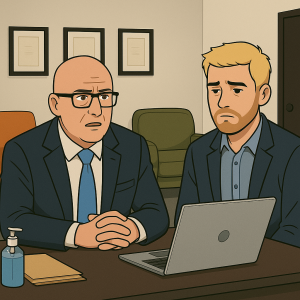1. Victim and Witness Rights
- Mississippi Attorney General – Victim Assistance Program
Offers advocacy, compensation assistance, and support for victims navigating criminal justice processes. - Mississippi Crime Victim Compensation Program
Provides financial reimbursement for medical, counseling, or relocation expenses resulting from crime victimization.
2. Free and Low-Cost Legal Aid Programs
- Mississippi Center for Legal Services
Offers free civil legal assistance to low-income residents, including restraining orders and harassment matters. - North Mississippi Rural Legal Services
Provides legal representation for eligible residents facing abuse, stalking, and related civil legal issues.
3. Relevant Laws
- Stalking: Miss. Code Ann. § 97-3-107
What it means: Willful and repeated harassment, following, or surveillance that causes emotional distress or fear for personal safety. Includes cyberstalking behavior. - Harassment: Addressed under stalking and communications laws (e.g., § 97-29-45)
What it means: Includes obscene, threatening, or repeated communications through phone or electronic means intended to annoy, abuse, or frighten someone. - Bullying: No adult criminal statute. Addressed under Miss. Code Ann. § 37-11-67 (Education Code)
What it means: Requires public schools to adopt anti-bullying and cyberbullying policies. Schools must respond to and investigate reported incidents. - Defamation: Civil tort, not criminal. Based on Mississippi common law and case law.
What it means: Victims may file a civil lawsuit for libel or slander when false statements harm reputation or livelihood. No criminal penalties exist for defamation in Mississippi.
4. Reporting and Hotlines
- Call 911 for emergencies or if you feel threatened.
- Report non-emergency harassment to your local police or sheriff’s department.
- Mississippi Coalition Against Domestic Violence (MCADV)
Offers legal referrals, shelter access, and safety planning statewide. - Statewide Domestic Violence Hotline: 1-800-898-3234
Provides 24/7 confidential support for survivors of domestic violence and related abuse.
5. Support Organizations
- Mississippi Coalition Against Domestic Violence
Coordinates local shelters and provides trauma-informed services for those experiencing stalking, harassment, or domestic violence. - Families First for Mississippi
Offers counseling, advocacy, legal help, and youth outreach services to prevent family and interpersonal violence.
6. Civil Remedies and Protection Orders
Victims may file for a Protection Order under Mississippi law in cases of stalking, abuse, or harassment. These orders may prohibit contact, digital messages, or physical approach. Legal services and court clerks are available to assist with documentation and hearings.
Important Note on Jurisdiction: If the individual you are seeking a restraining order against lives in a different state, your local court may not have jurisdiction to enforce that order. In most cases, you must file for protection in the state where that individual resides or where the conduct occurred. This applies even in situations involving online harassment, defamation, or stalking. Contact legal aid services in both your state and the other person’s state for guidance.
7. Youth and School Resources
- Mississippi Department of Education – Bullying Prevention
Provides anti-bullying policies, complaint protocols, and reporting forms for public schools.
8. Court Forms and Filing Help
- Mississippi Bar – Legal Forms
Includes civil court forms and resources for protection orders and restraining order filings.
9. Online Safety and Privacy Tools
- NNEDV Tech Safety Toolkit
Offers guidance for online privacy, safe communication, and protection from cyberstalking or impersonation.
Disclaimer: This information is provided for educational purposes only and does not constitute legal advice.




